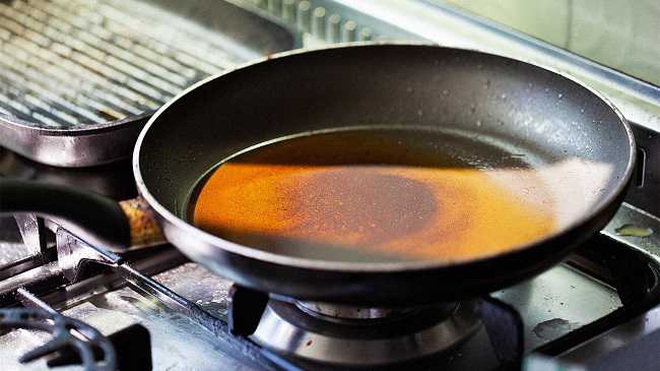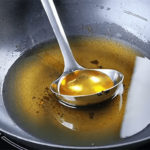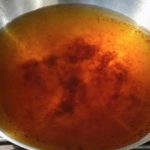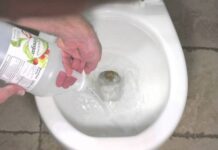Cooking oil is an essential ingredient in every family’s kitchen. However, for used oil, it needs to be properly handled to avoid any undesirable effects.

Properly handling used cooking oil helps protect the environment and health (Photo: Internet).
Absolute no pouring used oil down the drain
Cooking oil is lighter and does not dissolve in water, with a high adhesive property. When flushed down the drain, it will stick to the pipe walls, causing flow obstruction. Oil and grease-containing wastewater can seep into the soil or be carried by rainwater into groundwater, resulting in foul-smelling water and affecting both water sources for daily use and human health.
Handling excess grease with plastic bottles or plastic bags
One way to handle excess cooking oil after cooking is to collect it in plastic bottles, but make sure to let the oil cool down before doing so.
Collecting used oil in plastic bottles prevents the oil from leaking into the environment. You can let the oil solidify in the refrigerator before disposing of it. Then, you can put the bottle of used oil in the trash. The above method helps waste management staff perform their tasks more easily.
Using paper towels to absorb excess oil
If the amount of cooking oil is not too much, you can use paper towels to absorb the oil. After the oil has been thoroughly absorbed by the paper towels, wrap them in a plastic bag. You should not pour the oil directly into the trash, even in small amounts, as liquid oil is easily spread and attracts animals.
If you don’t want the trash can to be overturned overnight, use paper towels to absorb the oil, then wrap them in a plastic bag before putting them in the trash. This method helps limit the leakage of excess grease into the environment.
According to Dân trí
Tips for Disposing of Excess Cooking Oil
Have you ever been left with excess cooking oil after a meal and been unsure of how to dispose it properly? Well, it turns out pouring it down the drain or flushing it down the toilet is not the right way to go about it as this can cause blockages in the pipes as well as attract a range of unpleasant pests. To help you with this issue, here are some proper methods for disposing of your excess cooking oil.





































